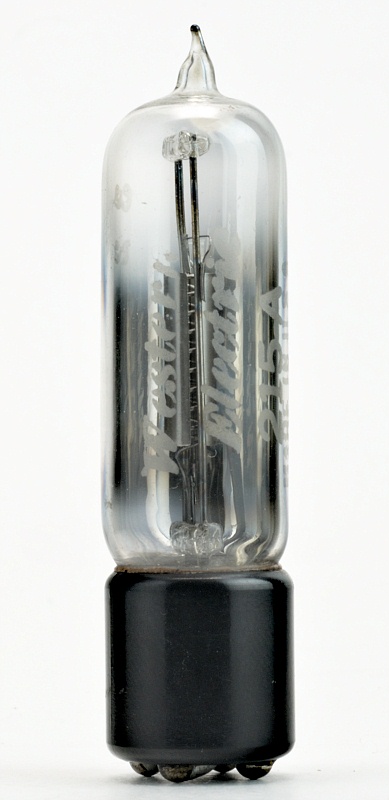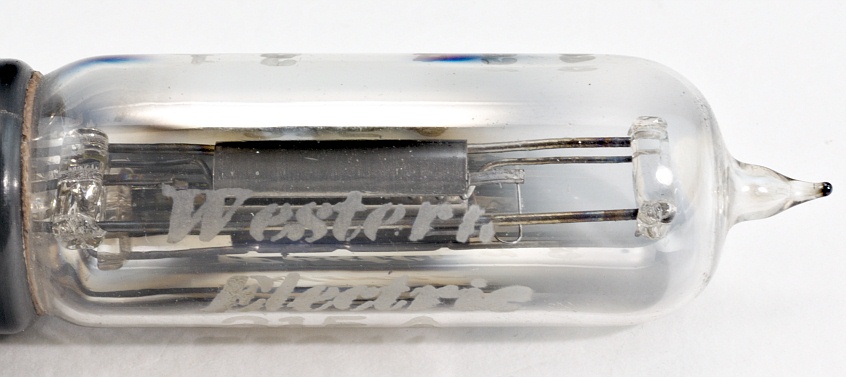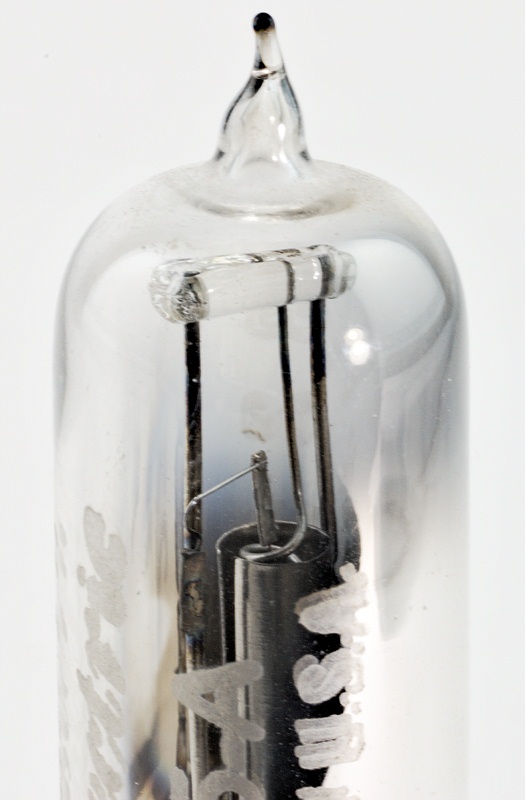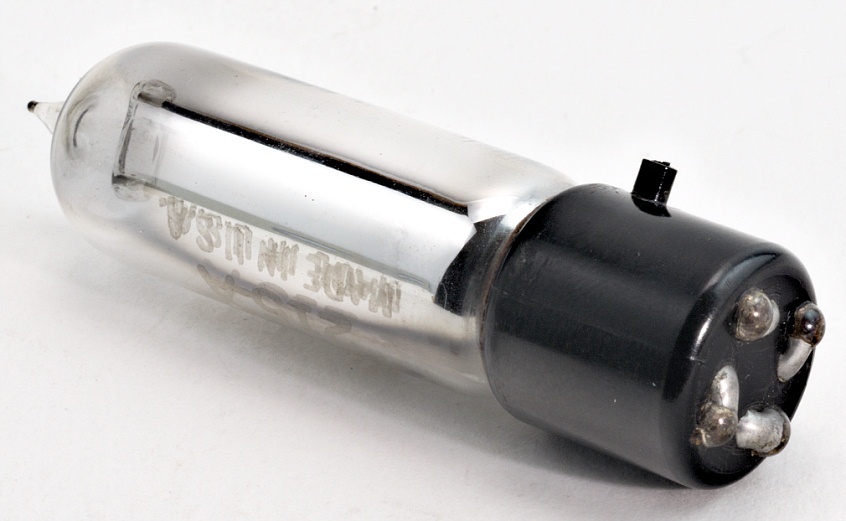Western Electric 215A Small Filamentary Triode
Triode miniature
Miniatur Triode
1919. Work began on this tube during WW I by Hendrik Johannes van der Bijl. Its design, for the Army, had the lowest possible filament power for use in battery-operated trench sets. Also identified as Signal Corps VT-5, Navy CW-1344 and later CW-38015. Because of its size, it was called a “peanut” tube and known to WE as type “N”.
The filament was wound from a single-strand barium- and strontium-coated “Konel” core, mounted vertically. The grid was a spiral nickel wire, and the anode a nickel cylinder. This construction was sensitive to mechanical shock and was improved by adding a glass reinforcing bead at the top of the tube structure, made of 1/16" cane glass, and a 0.010" nickel wire embedded in the stem press parallel to the tubular plate. It had a magnesium getter.
Although designed for portable military equipment, it appeared too late for WW I. The 215A functioned as an audio and intermediate-frequency amplifier, detector, or oscillator. It was used in the Wireless Specialty Apparatus BC-144 receiver (1928) and the WE 23A amplifier.
The 215A was also used for civilian purposes and appeared in WE 500-kHz monitor for broadcasting stations (3A TRF model and 4-type super heterodyne receivers) and audiometers. Also used in TRF broadcast receivers specially built by WE for the New York police (1925). Every precinct house had a radio fixed-tuned to the city's station WNYC. Using railroad-type rotary selectors controlled by a 3000-Hz tone, a dispatcher could selectively alert every location.
Western Electric finally refused to provide the Navy with the tubes in 1983 after 64 years of production.
Fiche technique • Data sheet • Datenblatt:
215A.pdf

Hauteur • Height • Höhe : 63 mm • 2" 1/2
Diamètre • Diameter • Durchmesser : 16 mm • 5/8"



Le contenu de ce site est sous copyleft  The content of this site is under copyleft
The content of this site is under copyleft  Der Inhalt dieser Website steht unter Copyleft
Der Inhalt dieser Website steht unter Copyleft
